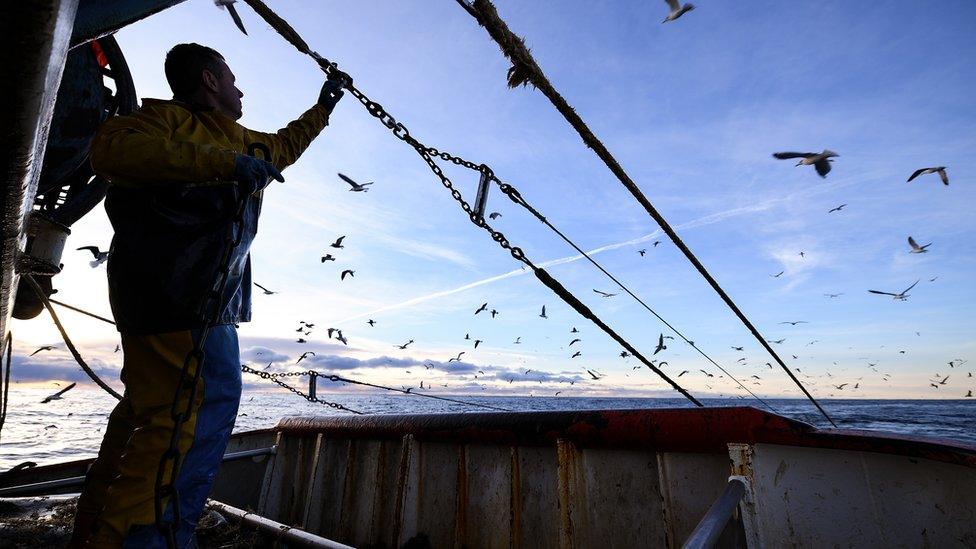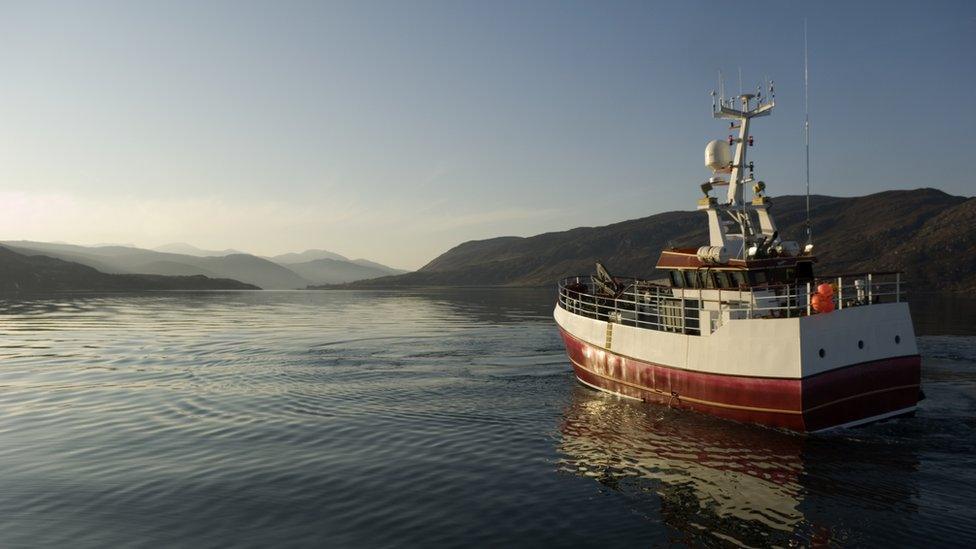Final Euro fishing deal 'challenging'
- Published
- comments

The talks were expected to be the last before Brexit
Scottish fishing leaders have said a European deal struck in the early hours of the morning was "as much as was possible under the circumstances".
The negotiations at the December Fisheries Council in Brussels are expected to be the last before Brexit.
The agreement will protect the west coast of Scotland from overfishing, to ensure a sustainable future.
It also seeks to secure year-long fishing opportunities for all Scottish vessels.
That includes mitigating potential "choke risk species" including cod and whiting on the west of Scotland, and ling and hake in the North Sea.
The agreement also allows for an "urgent review" of the discard ban.
Scottish boats will see increases in total allowable catch for monkfish, hake and haddock, but the quotas for several other key species have been cut.
'Dysfunctional' system
Industry bodies said the deal was "challenging but acceptable" and highlighted the importance of leaving the Common Fisheries Policy (CFP) after Brexit.
Mike Park, chief executive of the Scottish White Fish Producers Association, said: "The dynamics of negotiations this year were always going to be complicated given full introduction of the landings obligation and the fact that this is our last fisheries council as a fully-fledged member state.

"The outcome is less than what we hoped but as much as was possible under the circumstances."
Bertie Armstrong, chief executive of the Scottish Fishermen's Federation, said the talks had been "difficult, as they always are, with the additional element this year of politics related to Brexit."
He added: "For the Scottish industry, the central issue has been the inclusion of measures to limit the risk of 'chokes' by swapping between member states.
"The Scottish delegation worked long and hard, along with their UK colleagues, to give the best chance of avoiding fleet shutdown during 2019.
"In the end, it is clear that our best interests can only be put first when we have left the CFP and are able to decide who catches what, where and when in UK waters."
Mr Armstrong's comments were echoed by the Shetland Fishermen's Association, which said local fishermen and fishing communities had been "punished by distant bureaucrats who are utterly obsessed with unworkable rules" under the CFP.
Scientific evidence
The UK delegation at the talks included representatives from the UK's devolved administrations, including the Scottish government's fisheries secretary, Fergus Ewing.
Mr Ewing said he had "made the best of a bad situation" and was returning with "something close to the best possible deal that could realistically be secured."
And the UK government said this year's deal supports the fishing industry while protecting fish stocks.
UK fisheries minister George Eustice said: "These negotiations were the culmination of months of government-led work with the devolved administrations, industry and environmental NGOs, to secure the best possible deal for the whole of the UK fishing industry.
"We entered into discussions knowing that a good deal needed to carefully balance progress towards sustainability targets, while ensuring that we listen to the scientific evidence on the health of fish stocks and safeguard a profitable future for our hard-working fleet."